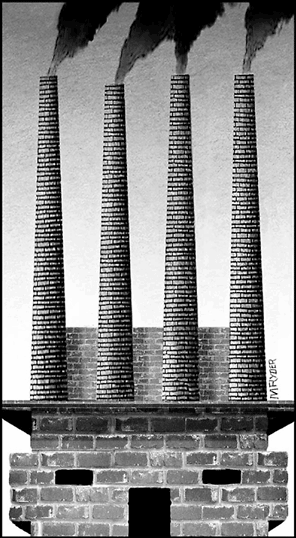forum
library
tutorial
contact

The New NW Power Plan is Good Start,
But Needs to Attack Coal Plants
by LeeAnne Beres and Sara PattonSeattle Times, September 27, 2009
|
the film forum library tutorial contact |

|
The New NW Power Plan is Good Start,
by LeeAnne Beres and Sara Patton |
 A DRAFT 20-year power and conservation plan from the Northwest's official power-planning agency contains several groundbreaking provisions, including a call to meet virtually all new electric demand with clean energy. But the plan would not reduce the region's greenhouse-gas emissions at all, and fails to address closure of the coal plants that produce almost all of the power system's climate pollution.
A DRAFT 20-year power and conservation plan from the Northwest's official power-planning agency contains several groundbreaking provisions, including a call to meet virtually all new electric demand with clean energy. But the plan would not reduce the region's greenhouse-gas emissions at all, and fails to address closure of the coal plants that produce almost all of the power system's climate pollution.
The Northwest Power and Conservation Council's Sixth Plan, once final, will tell the Bonneville Power Administration, and thus the public utilities it directly serves, which resources it should use to satisfy electric demand. Investor-owned utilities will see it as a benchmark for their decisions.
In many ways, the draft plan offers exactly what clean-energy proponents have sought for decades: a call for utilities to use new energy efficiency and renewable energy to meet rising electricity needs. The draft prescribes 5,800 average megawatts of conservation and 1,800 average MW of new renewables by 2030. (For comparison, Seattle City Light customers use around 1,100 on average each year.) The plan would not increase the electric system's carbon-dioxide emissions. Tom Karier, one of Washington's representatives on the Council, deserves special credit for pushing the council so far.
Times, however, have changed. Today we face the reality of a global warming that threatens the very foundations of society and steadily worsens as greenhouse gases continue to spew from power plants stacks and vehicle tailpipes. From a moral and ethical perspective, it is simply unacceptable to allow this change in our climate to continue unchecked.
Simply stabilizing CO2 emissions ignores the moral imperative to start cutting current emissions now. Washington, Oregon and Montana already have committed to 15-percent reductions by 2020, but the draft plan will not help the region achieve these emission-reduction goals.
Coal is the critical issue. We often forget that despite all our hydropower, the Northwest gets nearly a quarter of its electricity from dirty coal plants. Those plants now account for nearly 90 percent of the power system's global-warming emissions. We cannot possibly meet our climate responsibilities without ending our dependence on coal, a dirty and outdated power source. It is time to step up to the plate and shut down Northwest coal plants.
Although the council can't order the closure of coal plants, it can and should explicitly accept the necessity of phasing out coal. It can tell utilities to start planning for and working toward that goal. And it can do what its governing federal statute says it must do: fully factor environmental costs into its resource recommendations.
Council members should incorporate the supporting analyses done by their own staff into the final plan. These analyses include a finding that shedding coal power would have relatively minor rate impacts.
We have more than enough bill-cutting energy efficiency and affordable new renewable energy resources in our region to meet growing needs, save endangered salmon from looming extinction, phase out coal, and start electrifying transportation -- all the while creating good, local, family-wage jobs and accelerating economic recovery.
The new draft Northwest and Conservation Plan is good, as far as it goes. But we must go farther, faster, and commit to phasing out dirty coal plants. Council members need to hear that message at the public hearings now being held throughout the region. Seattle's is Wednesday.
Public involvement is critical if the final plan is to satisfy Northwest needs and values.
learn more on topics covered in the film
see the video
read the script
learn the songs
discussion forum
